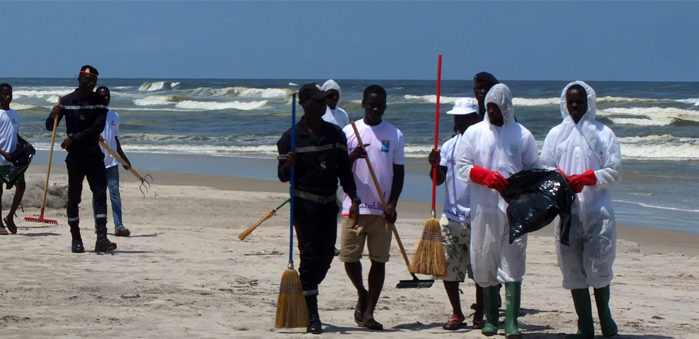A regional conference of countries in west, central and southern Africa has committed to continue to work at both national and regional levels, to boost preparedness to deal with oil spill incidents which could be devastating both for the marine environment and financially.
The conference, held on 6-9 November in Abidjan, Côte d’Ivoire, was hosted by CIAPOL, the Ivoirian pollution control centre, bringing together industry and government focal points from 20 out of 22 west, central and southern African countries covered by the Global Initiative for West, Central and Southern Africa (GI-WACAF), a project run by UN’s IMO.
The regional conference is the largest event for oil spill preparedness, response and cooperation activities in west, central and southern Africa, held once every two years. Participants this year discussed a number of topics, including relevant international and regional legislation, exercise and training, use of oil spill dispersants, trans-boundary cooperation and shoreline clean-up.
The GI-WACAF project, initiated in 2006, aims to enhance the level of oil-spill preparedness in a particularly vulnerable region, in line with IMO’s International Convention on Oil Pollution Preparedness, Response and Co-operation 1990 (OPRC 90).
This treaty is the international instrument that provides a framework designed to facilitate international co-operation and mutual assistance in preparing for and responding to major oil pollution incidents. It requires States to plan and prepare by developing national systems for pollution response in their respective countries, and by maintaining adequate capacity and resources to address oil pollution emergencies.
Numerous activities designed to develop many aspects of national spill preparedness and response have been held over the past decade. For example, the 100th GI-WACAF activity, in Abidjan and Assinie, Côte d’Ivoire, on 8-9 June 2017, demonstrated the progress being made in the region. By the end of the 2016/2017 biennium, more than ten national workshops and three regional/sub-regional workshops will have been implemented, IMO said.
“These efforts aim to complement the work undertaken at the national level to ratify and fully implement relevant IMO treaties, including the OPRC Convention and liability and compensation treaties which cover pollution damage by oil from ships (such as the International Convention on Civil Liability for Oil Pollution Damage (CLC 1992) and the International Convention on Civil Liability for Bunker Oil Pollution Damage, 2001).”
Ratification amongst countries is steadily increasing. Most of the 22 countries have now ratified the OPRC and CLC conventions, while the pace of ratification of the Bunkers convention needs further commitment and focus since only six of the 22 have ratified this treaty to date.
Further priorities of IMO for the next two years include more effective sharing of key information through the development of databases on available response resources, key contacts and response policies.






























































